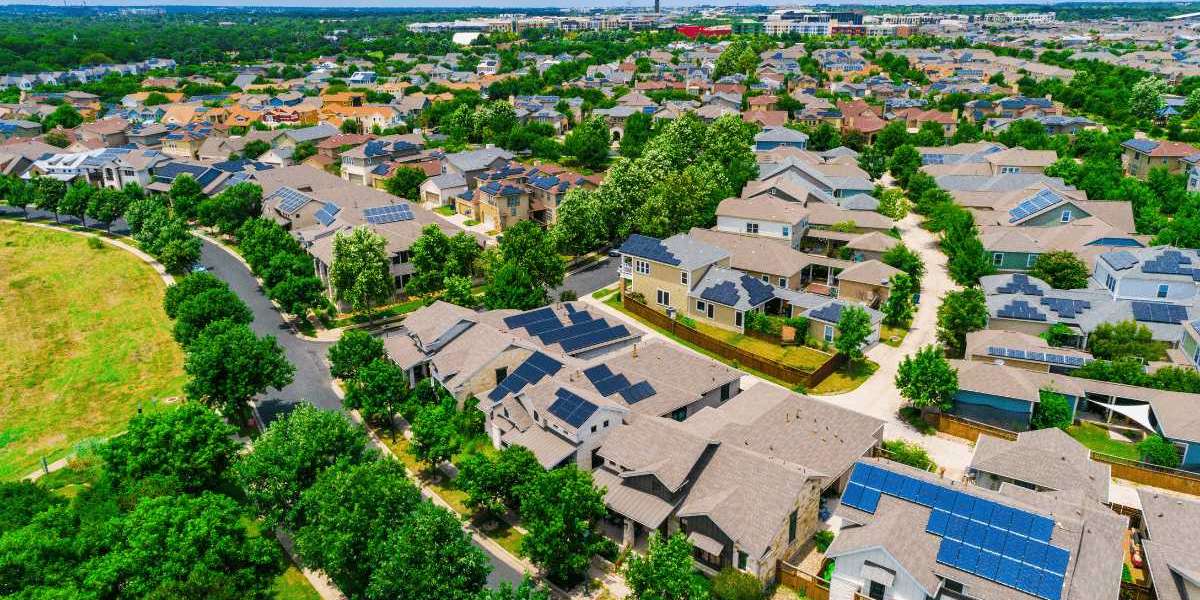ESG consulting plays a pivotal role in supporting sustainable real estate projects in Malaysia. ESG, which stands for environmental, social, and governance, refers to a set of principles that organizations integrate into their operations to ensure positive impacts on the planet, society, and business practices. In the context of sustainable real estate, ESG consulting provides invaluable guidance on incorporating these principles into project development and management.
By leveraging ESG consulting services, real estate developers and investors in Malaysia can align their projects with international standards of sustainability and responsible business practices. ESG consultants bring significant expertise in areas such as renewable energy, affordable housing, and sustainable agriculture, enabling them to contribute to the overall well-being of the environment and the community.
Moreover, ESG consulting assists in addressing social issues and mitigating the environmental impacts of real estate developments. By considering factors such as carbon footprint reduction, efficient resource utilization, and inclusive community engagement, ESG consultants help create a positive social impact while ensuring long-term value creation.
As the demand for sustainable real estate continues to grow, ESG consulting serves as a strategic tool in navigating the complexities of the industry. ESG consultants provide comprehensive assessments, develop policies, conduct extensive training sessions, and establish measurable metrics to monitor progress. Their adaptive and holistic approach ensures that sustainable practices are integrated at every stage of project development, from feasibility studies to post-construction monitoring.
Future of ESG in Malaysia: Budget 2024 Measures
As the world acknowledges the importance of sustainable development, Malaysia is taking significant strides towards integrating environmental, social, and governance (ESG) principles into its real estate industry. The introduction of the "Budget 2024" measures further signifies the government's commitment to sustainable and responsible investment in the country's real estate sector.
Sustainable and Responsible Investment
One of the key highlights of the "Budget 2024" is the emphasis on sustainable and responsible investment. The Prime Minister of Malaysia has emphasized the need for the country to reduce its carbon footprint and promote sustainable practices across all industries, including real estate. The budget allocations aim to support projects that prioritize renewable energy, affordable housing, and sustainable agriculture.
ESG Policy Frameworks
To facilitate the integration of ESG principles into the real estate industry, the government has announced the development of comprehensive ESG policy frameworks. These frameworks will serve as guidelines for developers, project managers, and stakeholders, enabling them to incorporate ESG considerations into their projects and operations effectively.
Tax Incentives for ESG Integration
The "Budget 2024" also includes tax measures to encourage ESG integration in the real estate sector. This includes tax incentives for developers who adopt environmentally-friendly practices, such as the development of carbon-neutral projects. By incentivizing sustainable practices, the government aims to accelerate the shift towards a greener and more sustainable real estate industry.
Measurable ESG Metrics
Another significant aspect of the "Budget 2024" is the focus on measurable ESG metrics. The government is working towards establishing key performance indicators (KPIs) that will enable stakeholders to assess and monitor the environmental and social impact of real estate projects. This emphasis on measurable metrics will not only encourage transparency but also help drive continuous improvement in sustainable development practices.
Training and Capacity Building
Recognizing the pivotal role of a knowledgeable workforce, the government plans to invest in training programs and capacity building initiatives. These programs will ensure that real estate professionals have the necessary skills and expertise to integrate ESG considerations effectively. By equipping project managers, consultants, and other stakeholders with the expertise needed, the industry will be better equipped to address environmental and social challenges.
Regulatory Support
To ensure the successful implementation of ESG integration in the real estate sector, the government is working closely with regulatory bodies. Through collaborative efforts, they are creating comprehensive policies and standards that will facilitate the integration of ESG considerations throughout the project lifecycle. These regulations will provide a framework for developers and project teams to address key ESG concerns and ensure compliance with sustainable practices.
ESG Integration in Malaysian PPP Projects: A Comprehensive Guide
Integrating Environmental, Social, and Governance (ESG) considerations into Malaysian public-private partnership (PPP) projects is essential for fostering sustainable development and building a resilient real estate industry. By following a step-by-step approach and incorporating key ESG principles, stakeholders can ensure that these projects align with international standards, address social issues, and minimize their environmental impact. In this comprehensive guide, we will explore the importance of ESG assessment, policy frameworks, stakeholder engagement, training, and monitoring, enabling you to successfully integrate ESG considerations into Malaysian PPP projects.
Importance of ESG Assessment
Before embarking on any PPP project, it is crucial to conduct a comprehensive ESG assessment. This assessment helps identify potential environmental risks, social implications, and governance challenges associated with the project. By understanding these aspects, project managers can develop strategies to mitigate risks and establish sustainable practices that align with the project's objectives.
Establishing Policy Frameworks
To ensure a consistent and effective approach to ESG integration, it is essential to establish clear policy frameworks. These frameworks outline the project's commitment to sustainable practices, environmental conservation, social welfare, and corporate governance. They serve as a guide for all stakeholders involved in the project, ensuring that ESG considerations are integrated at every stage.
Engaging Stakeholders
Engaging relevant stakeholders is a pivotal aspect of successful ESG integration in PPP projects. By collaborating with government agencies, local communities, infrastructure developers, and environmental organizations, project managers can address key ESG concerns and incorporate diverse perspectives. This engagement fosters transparency, inclusivity, and the overall success of the project.
Training for ESG Awareness
A knowledgeable workforce is crucial for effective ESG integration. Project managers should conduct training sessions to raise awareness about the significance of ESG principles, provide guidance on their implementation, and ensure that all team members are equipped with the necessary skills to incorporate ESG considerations into their respective roles. This training enables an adaptive approach and ensures sustainable practices are embedded throughout the project.
Monitoring and Reporting
Monitoring and reporting the project's ESG performance is an essential part of successful integration. By implementing measurable ESG metrics and regularly monitoring progress, stakeholders can track the project's impact on the environment, society, and governance. This data allows for informed decision-making and ensures accountability throughout the project's lifecycle.
Benefits of ESG Integration in Real Estate Projects
Incorporating Environmental, Social, and Governance (ESG) principles in real estate projects brings a multitude of benefits, contributing to enhanced sustainability, improved stakeholder satisfaction, and long-term value creation. By prioritizing ESG considerations, developers and investors can align their projects with sustainable development goals while creating positive social and environmental impacts. Let's explore the key benefits that ESG integration offers in the real estate sector.
- Enhanced Sustainability
Integrating ESG principles allows real estate projects to prioritize sustainability and reduce their environmental footprint. By implementing energy-efficient technologies, optimizing resource usage, and promoting renewable energy sources, developers can minimize carbon emissions and contribute to the mitigation of climate change. Sustainable waste management practices and the conservation of natural resources further enhance the project's environmental sustainability.
- Improved Stakeholder Satisfaction
By embracing ESG principles, real estate projects demonstrate their commitment to social responsibility and stakeholder engagement. Prioritizing community involvement, affordable housing initiatives, and sustainable agriculture practices fosters positive relationships with local communities. This approach strengthens the project's social license to operate, enhances the well-being of surrounding communities, and improves the quality of life for residents and stakeholders.
- Long-Term Value Creation
ESG integration enhances the long-term value of real estate projects by mitigating risks and creating new business opportunities. Investors and developers who prioritize sustainability attract socially-conscious tenants, buyers, and investors, which can positively impact property values and rental incomes. Additionally, integrating ESG practices helps future-proof projects by anticipating and adapting to evolving regulations, market demands, and societal expectations.
- Regulatory Compliance and Market Relevance
Incorporating ESG principles ensures compliance with evolving environmental regulations and market standards. Governments and regulatory bodies increasingly recognize the importance of sustainable development and may introduce initiatives, tax incentives, and policies that reward ESG integration. By staying ahead of regulatory requirements and aligning with international standards, real estate projects remain relevant and attractive to investors and occupants who value sustainability.
- Positive Brand Image and Reputation
ESG-focused real estate projects build a positive brand image and reputation. Sustainable development practices bolster a project's reputation as an environmentally responsible and socially conscious entity, attracting investors, customers, and partners who share similar values. A solid brand image based on ESG principles can differentiate projects from competitors, contributing to long-term success and market leadership.
Conclusion
The integration of ESG principles in the real estate industry is crucial for fostering a sustainable and resilient future for Malaysia. By taking a proactive approach towards environmental, social, and governance considerations, the industry can contribute to the well-being of society and the environment while ensuring long-term value creation.
The key points discussed throughout this guide highlight the significance of ESG consulting in supporting sustainable real estate projects in Malaysia. By following a step-by-step approach to integrating ESG considerations into public-private partnerships, stakeholders can effectively assess the environmental and social impact of their projects, implement policy frameworks, engage with relevant stakeholders, and monitor progress.
Embracing ESG in the real estate sector offers numerous benefits, including enhanced sustainability, improved stakeholder satisfaction, and the creation of long-term value. By incorporating ESG principles, developers can align themselves with international standards, contribute to the reduction of Malaysia's carbon footprint, and address social issues such as affordable housing and sustainable agriculture.
As Malaysia moves forward with its economic transformation, the strategic integration of ESG considerations in real estate projects will play a pivotal role. With the government's commitment to sustainable practices and the implementation of tax measures to encourage ESG integration, the real estate industry is poised to achieve significant milestones in sustainability and responsible investment.
To ensure successful ESG implementation, stakeholders must prioritize comprehensive assessments, establish measurable ESG metrics, and invest in the development of a knowledgeable workforce. Training sessions and collaborations with regulatory bodies, environmental organizations, and local communities are essential for creating a holistic and adaptive approach to ESG integration.
By embracing ESG principles and making them a focal point of the real estate industry, Malaysia can create positive social and environmental impacts while driving economic growth and attracting sustainable investments.








